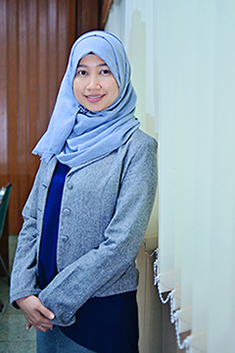Skrining Aktivitas Antimalaria Beberapa Tanaman Indonesia Hasil Eksplorasi Dari Hutan Raya Cangar, Batu-Malang, Jawa Timur
Downloads
Background: Malaria is the most important parasitic disease. Malaria control which depends on specific chemotherapy now complicated by resistance of Plasmodium falciparum to most commonly available antimalarial drug. Such situation has heralded the need for alternative antimalarial therapy.Objective: This research aim was to find new antimalarial candidates from some Indonesia plants collected from Cangar National Forest, Batu-Malang, East Java.Methods: Eleven samples of leaves and stem extracts were screened against Plasmodium falciparum 3D7 culture which maintained in RPMI-1640 Medium. Samples tested in concentration of 0.01, 0.1, 1, 10 and 100 µg/ml. Probit analysis was used to determine IC50. Results: In vitro antimalarial activity revealed that only three crude extracts samples from Fraxinus griffithi stem extract, Piper sulcatum leaves extract and Eucalyptus globulus stem extract had good antimalarial activity with IC50 value of 0.33, 0.20 and 0.55 µg/ml, respectively. Conclusions: Fraxinus griffithi stem extract, Piper sulcatum leaves extract and Eucalyptus globulus stem extract might be a good candidate for antimalarial natural product resources.
Awe SO, Makinde JM. 1998. Evaluation of sensitivity of Plasmodium falciparum to Morinda lucida leaf extract sample using rabbit in vitro microtest technique. Indian J Pharmacol. 30(1):51-53.
Azlin E. 2003. Uji klinis acak tersamar ganda gabungan sulfadoksin-pirimetamin dengan klorokuin pada malaria. Laporan penelitian. Bagian Ilmu Kesehatan Anak Fakultas Kedokteran. Universitas Sumatera Utara. Cited on: www.digital.usu.lib
Bagavan A, Rahuman A, Kamaraj C, Kaushik NK, Mohanakrishnan D. 2010. Antiplasmodial activity of botanical extract against Plasmodium falciparum. Parasitology Research. Vol 108 Number 1 pp 15-22.
Begum AD, Goyal M. 2007. Research and Medicinal Potential of Genus Cestrum (Solanaceae). Pharmacognosy Reviews. Vol 1 issue 2.
Bero J, Frederich M, Quetin-Leclercq J. 2009. Antimalarial compounds isolated from plants used in traditional medicine. Journal of Pharmacy and Pharmacology. 61:1401-1433.
Bidla G, Titanji VPK, Jako B, Ghazali GE, Bolad A, Berzins K. 2004. Antiplasmodial activity of seven plants used in African folk medicine. Indian J Pharmacol 36:245-246.
Biswas K, 2002. Biological activities and medicinal properties of neem (Azadirachta indica). Current Science. vol 82, No.11:1336-1345.
Esmaeili S, Naghibi F, Mosaddegh M, Sahranavard S, Ghafari S, Abdullah NR. 2008. Screening of antiplasmodial properties among some traditionally used Iranian plants. Journal of Ethnopharmacology. Vol 121, pp 400-404.
Garavito G, Rinc'on J, Arteaga L, Hata Y, Bourdy G, Gimenez A, et al. 2006. Antimalarial activity of some Colombian medicinal plants. Journal of Ethnopharmacology. Vol 107 pp 460-462.
Harijanto PN. 2000. Malaria : Epidemiologi, Patogenesis, Manifestasi Klinis, dan Penanganan. Jakarta: Penerbit Buku Kedokteran EGC.
Hidayat MA. 2002. Uji aktivitas antikanker ekstrak heksana daun Eupatorium triplinerve Vahl terhadap kultur sel myeloma. Jurnal Ilmu Dasar. Vol 3 (2):92.
Katuura E, Waako P, Tabuti JRS, Bukenya-Ziraba R, Ogwal-Okeng J. 2007. Antiplasmodial Activity of Extracts of Selected Medicinal Plants Used by Local Communities in Western Uganda for Treatment of Malaria. African Journal of Ecology. Vol. 45 (3):94-98.
Karou D, Dicko MH, Sanon S, Simpore J, Traore AS. 2003. Antimalarial activity of Sida acuta Burm. f. (Malvaceae) and Pterocarpus erinaceus Poir. (Fabaceae). Journal of Ethnopharmacology. vol. 89 (2-3):291-294.
Knell AJ. 1991. Malaria. New York:Oxford University Press, pp 29-30.
Kristanti AN, Aminah NS, Tanjung M, Kurniadi B. 2008. Buku Ajar Fitokimia. Surabaya : Airlangga University Press.
Lusakibanza M, Mesia G, Tona G, Karemere S, Lukuka A, Tits M, et al. 2010. In vitro and in vivo antimalarial and cytotoxic activity of five plants used in Congolese traditional medicine. Journal of Ethnopharmacology. vol. 129 (3):398-402.
Mbacham W, Roper C, Targett G, Grenwood B. 2004. Gates malaria partnership annual report. Antimalarial drug resistance in Cameroon:
Therapeutic efficacy and biological marker resistance, p13.
Mishra K. Dash AP, Swain BK, Dey N. 2009. Antimalarial activities of Andrographis paniculata and Hedyotis corymbosa extract and their combination with curcumin. Malaria journal. 8:26.
Muhlisah FI, 1999. Temu-temuan dan empon-empon, budi daya dan manfaatnya. Yogyakarta. Kanisius.
Noor Rain A, Khozirah S, Mohd Ridzuan MAR, Ong BK, Rohaya C, Rosilawati M, et al., 2007. Antiplasmodial properties of some Malaysian medicinal plants. Tropical Biomedicine. Vol 24 Issue (1) pp 29-35.
Park IK, Lee SG, Shin SC, Pak JD, Ahn YJ. 2002. Larvicidal activity of isobuthylamides identified in Piper nigrum fruits against three mosquito species, J Agric Food Chem. 50(7):1866-1870.
Phillipson JD. 1991. Assays for Antimalarial and Amoebicidal Activities. Methods In Plant Biochemistry. Vol. 6, pp 135-141.
Price RN, Nosten F, Luxemburger C. 1996. Effects of artemisinin derivatives on malaria transmissibility. Lancet. 347:1654-1655.
Rasoanaivo P, Eric D, Suzanne R, Frappier F. 2004. Traditional Medicinal Plants and Malaria: Guidelines for the Nonclinical Evaluation of the Efficacy of Traditional Antimalarials, CRC Press, p. 266.
Saxena S, Pant N, Jain DC, Bhakuni RS. 2003. Antimalarial Agents from Plant Sources. Current Science. Vol 8 (9):1314-1329.
Schwikkard S, Van Heerden FR. 2006. Antimalarial activity of plant metabolites. Nat Prod Rep 19:675-692.
Titanji VPK, Zofou D, Ngemenya MN. 2008. The antimalarial potential of medicinal plants used for the treatment of malaria in Cameroonian folk medicine. African Journal of Traditional, Complementary and Alternative Medicine. Vol. 5(3):302-321.
Trager W, Jensen WB. 1976. Human Malaria Parasites in Continuous Culture. Science.193:673-675.
Voight R. 1994. Buku Pelajaran Teknologi Farmasi, Edisi Kelima, Yogyakarta : Penerbit Gadjah Mada University Press.
Widyawaruyanti A. 2001. Uji aktivitas antimalaria dari senyawa diterpen laktona hasil isolasi Andrographis paniculata Nees. Laporan
Penelitian Project Grant-QUE, Fakultas Farmasi, Universitas Airlangga.
1. The copyright of this journal belongs to the Editorial Board and Journal Manager with the author's knowledge, while the moral right of the publication belong to the author.
2. The formal legal aspect of journal publication accessibility refers to the Creative Commons Attribution-Non-Commercial-Share Alike (CC BY-NC-SA), which implies that the publication can be used for non-commercial purposes in its original form.
3. Every publication (print/electronic) is open access for educational, research, and library purposes. In addition to the objectives mentioned above, the editorial board is not responsible for copyright infringement


.jpg)















